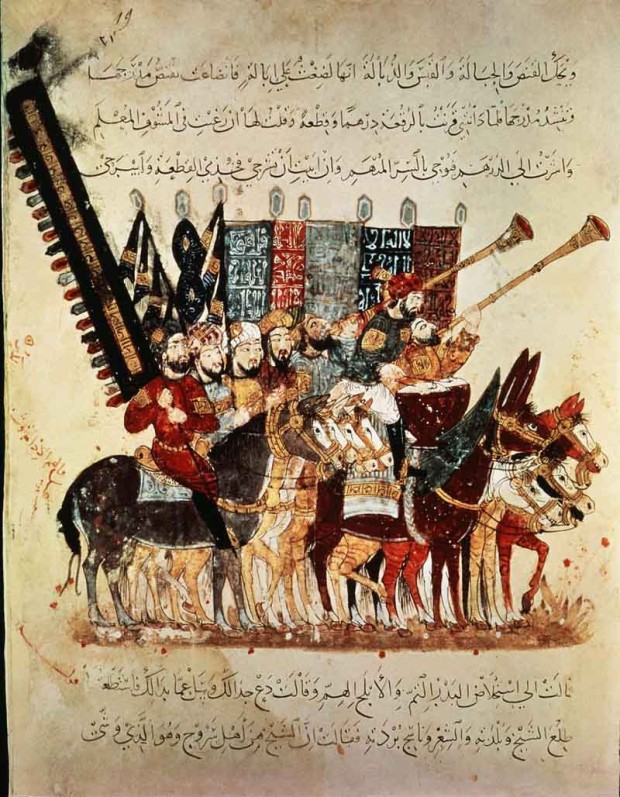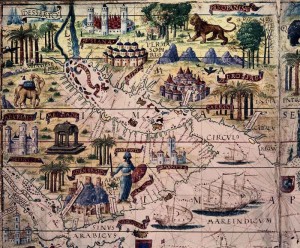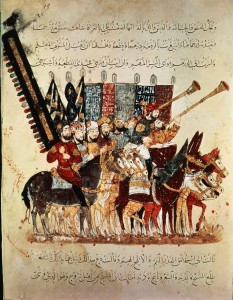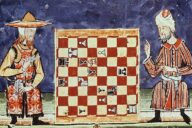This historical review aims at proving that many of the clichés and prejudices against Islam and the Muslim population defended today are not new. In fact, the first expressions intending to vilify Islam appeared on the 7th century and focused on targeting the Prophet. The purpose was to restrain Islam’s cultural supremacy in the Mediterranean, which expanded rapidly.
The most interesting thing is that Islam, at the time, was considered a heresy of Christianism. That is, the realm of Christian thought established before the emergence of Islam was not a unified realm at all, with regard to its religious ideology. On the contrary, from the 1st to the 7th century, many Christian scholars, monks and bishops, had expressed their theories on Jesus and his message, sometimes linking themselves only to the simple doctrines professed by the Palestinian apostles who surrounded and lived with Jesus, and disagreeing with the dominant Pauline theories, defended by Paul the Apostle, who was, in fact, of Jewish family, born in Greek territory and educated in the sphere of Hellenism, of Roman nationality, and who didn’t meet Jesus in life.
John of Damascus
Returning to our historical time, John, or Yahya, who would be later known as John of Damascus, was born in Damascus on the 7th century – under the government of the Umayyad Caliph Muawiyya – to a Byzantine Christian family linked to the Caliphal administration. Like his father, he held an important position in the Caliphal financial administration, and was, apparently, a childhood friend of prince Yazid, Caliph Muawiyya’s heir. The Umayyad prince wasn’t characterized for being a pious Muslim, he was aggressive, tyrannical and close to magical practices, which aren’t accepted in Islam.
The Damascene resigned from his governmental position and retired to leave in the Christian monastery of Saint Sabbas, close to Jerusalem, where he lived for the rest of his life. During his monastic life, he wrote several books on the Christian exegeses, among them, “The Fountain of Wisdom”. In this treatise, there is a chapter on Christian heresies, very common at that time, and among them we find Islam.
With a virulence that didn’t correspond to his pacific coexistence in the Islamic world, but that was maybe a product of the frustration generated by the Islamic conquest of Syria, or by the fact that one of his relatives had, apparently, died in the battle of Yarmuk, during said conquest, the Damascene shows a special hostility towards Islam, and, more specifically, towards the Prophet of Islam, Muhammad, who obviously he didn’t know, as they were not coetaneous.
He describes Islam as a superstition of the Ishmaelites, descendants of Ishmael, son of Abraham and Agar. He branded the Prophet of Islam as a false prophet who knew the Old and New Testament, thanks to his conversations with an Arian monk, and who considered himself an illuminated who had received a celestial revelation.
Read more (in Spanish)

















No Comments